Hard Skills
Hard skills are not so hard to get. What’s hard about them is keeping your employees up-to-date with the right skills for the job at hand. The reality is, the skills needed for most jobs today are constantly evolving. To stay competitive, and meet the hard skill standards required, companies need continuous L&D programs that keep their people at the top of their game when it comes to evolving technology and methods of work.
What Are Hard Skills?
A hard skill is a skill that can be objectively measured. For example, programming: A person’s level of proficiency in a certain programming language can be assessed by giving them a task to create code. Their output can be graded by measuring the time it took to complete the task and how many errors were made.
In comparison, soft skills are graded subjectively. Take, for example, written communication skills. Somebody who is assessing this skill might prefer a candidate whose writing is short and precise, while another assessor prefers extensive explanations. Other essential soft skills include interpersonal skills, analytical thinking, and empathy.
Why Are Hard Skills Important?
Hard skills, also known as technical skills, are the basis of many enterprises and are used to some degree in every company. Businesses that sell manufactured goods or software rely on engineers and production staff. Any organization that deals with finance needs accountants. Even entities that provide only human resource-based services, such as schools and social workers, still use computerized processes such as payroll sheets and scheduling, while teachers use electronics in their classrooms.
In addition, hard skills are basic to everything that people do. The recognition of soft skills as a category of workplace skills only dates back to the late 1960s. The concept that employees need training in specific skill areas simply to improve non-technical abilities is relatively new.
Comparing the Importance of Hard Skills and Soft Skills
Despite their fundamental nature, hard skills are often viewed as less essential, in many cases, than soft skills. As described in this article from Chief Learning Officer, “about 90 percent of [L&D] programs are in the soft skills area, suggesting that executives want to see the impact and ROI of soft skills.”
This does not mean that hard skill training is not necessary – it is, as we’ve stated, essential. Rather, it signifies that a lack of soft skills can have a more detrimental effect on an organization – or an employee’s tenure at that organization – than a lack of hard skills. Companies need to focus on soft skills training because it is more difficult for workers to be proficient in them, and because they are used more widely, especially in certain roles. In fact, the top reason for poor workplace performance is a lack of soft skills, according to Forbes.
Examples of Hard Skills
There are thousands of work-related activities that can be considered hard skills, but for the sake of classification and simplicity, there are three basic types:
Physical
Physical tasks rely on some kind of physical activity. Physical hard skills include certification in a type of heavy machinery, such as truck driving, forklift operation, etc. But physical skills are also needed for jobs that include any kind of data input when typing reports, setting schedules, and so on.
Standards-Based
Certain sorts of work must be carried out according to some type of professional regulation. Examples include bookkeeping, engineering, and manufacturing. Nowadays, almost all employees must be trained in some kind of standards-based work. Regulations such as GDPR (in the EU) involve the cooperation of many kinds of employees at various levels of a company. Because these rules are complex, workers often go through periodic standards training throughout their careers.
Procedures
Every workplace has a set of general practices that keep the company running smoothly. Examples of jobs that require procedures include secretarial tasks, programming, and working with communications media.
When All 3 Types Come Together
Some hard skills require only a few short hours of instruction, while others take years to develop. One example of a task that touches on all three categories listed above is bookkeeping.
Bookkeepers need to input data, a physical skill that relies on typing. This skill might be taught by a trainer at a community college or through an online course.
Secondly, the role of bookkeepers is to maintain accounting records, and accounting is a standards-based profession. For this reason, a bookkeeper must have a firm grasp of accounting rules such as GAAP. These standards are often acquired in university business courses or accounting schools.
Lastly, each organization has a unique financial system and so develops internal bookkeeping procedures. Getting familiar with these procedures happens once the bookkeeper is employed by the organization, and is then probably advised by a mentor regarding the record-keeping practices of the company. Bookkeeping also depends on software, so the employee would also need instruction on whatever accounting program the organization uses.
It should be noted that coaching also plays a role in developing a bookkeeper’s skills. Should the employee face a non-technical challenge like time management, for example, a coach would be the best option for the job.
Hard Skill Turnover
The rapid turnover of skills is one of the biggest challenges for HR departments today. According to the Society for Human Resources Management, nearly half of all employees will need to be retrained in the next 10 years. As artificial intelligence and digitization continue to skyrocket, there will be continued growth in roles that require related capabilities. HR teams need to prepare upskilling and reskilling programs to anticipate potential hard skill shortages.
The key question here is, “which hard skills?” The fields of high technology are mainly behind skills turnover, but these are also difficult to predict. New programming languages and AI capabilities mean that nothing is certain. For example, ChatGPT can write and debug programs, and that includes the use of natural language programming. In a few years from now, will programmers face shrinking demand for their services? Only time will tell.
The Future of Hard Skills
In light of this, HR professionals must stay up to date about which hard skills will be needed in two or three years. Perhaps some predictions will be wrong. But recruiting for hard skills today, and then retraining the employee when required, is better than nothing. Hard skill workers are in demand, and there is a shortage of them (see below), so companies need to get the ball rolling for the hard skill hiring process.
There are still some general guides that forecast what hard skills will be the most important in the coming years. According to the WEF, here are the jobs that will see the highest levels of creation over the period 2023-2027:
AI and Machine Learning Specialists
This is one of the biggest business trends across the planet, and has many workers concerned that they will lose their jobs. However, the number of roles created by AI and machine learning (ML) is predicted to be greater than those lost.
Artificial intelligence refers to the technologies that in many ways mimic human capabilities. AI programs are used to process visual information (through cameras), understand textual data, respond to spoken or written commands and queries, and make recommendations, among other applications.
In comparison, ML is a part of artificial intelligence. It allows a system to learn and improve its output based on the analysis of huge datasets. ML is a kind of “fire and forget” technology most of the time. It is programmed to be self-teaching so that it learns on its own. It also improves over time as it gains access to more information.
AI/ML specialists must have extensive programming skills but will also benefit from soft skills such as problem-solving, communication, and critical thinking.
Sustainability Specialists
A sustainability specialist helps companies to meet some of the goals set as part of an environmental, social, and governance (ESG) program. They advise ESG teams on business strategies to overcome sustainability challenges. A sustainability specialist uses a combination of business expertise and environmental knowledge. Here are some of the tasks that a sustainability specialist performs:
- Identifying sources of renewable energy such as hydropower, solar, and wind
- Teaching employees about ESG programs
- Collecting and maintaining data
- Monitoring progress regarding long-term ESG objectives
- Ensuring compliance with governmental regulations
A sustainability specialist requires a wide set of skills to accomplish their tasks. These can include knowledge of environmental science, data analytics, leadership, and teamwork.
Business Intelligence Analysts
A business intelligence analyst uses organizational data and other information to help the company make logical business decisions. Business intelligence analysts tend to go through a three-stage process. First, they collect and refine data about, for example, sales, revenue, market trends, and customer relationships. Then, through programming tools and analytical models, they interpret the data to reveal patterns and identify areas of improvement. Finally, they produce reports and cooperate with others in the company to discuss findings and take part in forming recommendations.
In addition to obvious business intelligence analyst skills like the use of relevant tools, this role benefits from abilities such as critical thinking, presentation skills, and communication.
Information Security Analysts
Information security analysts are in charge of defending organizational information from data breaches and cyberattacks. With the amount and sensitivity of client data stored in many company systems, information security analysts have a critical role. When a company experiences a data breach, it is more than embarrassing. It can result in fines, lost customers, and lawsuits. Among the common activities of information security analysts are:
- Creating security standards and processes to block attacks and mistakes
- Leading the investigation if a data breach occurs
- Installing and maintaining firewalls and encryption software
- Finding risks in an organization’s IT systems
An information security analyst’s skills include problem solving, collaboration, and attention to detail.
Financial Technology Engineers
The financial technology (fintech) industry makes financial transactions more efficient and spans many sub-industries such as peer-to-peer transactions (for example, Bit or Venmo), business payments, e-commerce, investments, and stock trading. Fintech engineers use their expertise to write, debug, and maintain code through building programs that support the needs of customers and their organization.
Like an information security analyst, fintech engineers have a lot of responsibilities because they have access to client information. A fintech engineer must have knowledge connected to compliance, financial standards, and data privacy. It also helps to have experience in the specific market segment in which the company operates, such as online banking, micropayments, financial advisory, and stock trading.
As mentioned, fintech engineers can be active in many skill areas. In addition to abilities connected to programming, data science, ML, and cybersecurity, these employees should also be great at communication, creativity, and problem solving.
A Warning About Hard Skills
Any business relies on a long chain of hard skills to get things done. If there is a shortage of relevant skills at any link in the chain, operations suffer. According to the WEF, the EU does not have enough IT professionals, electronics experts, and construction workers. Obviously, the first two jobs are important for any technology company. But a shortage of construction workers means delays in building offices, and that can impact any organization. The message for organizations is to expect higher salary levels for jobs that extensively involve hard skills, and to plan far in advance when a company needs ancillary hard skill services.
Creating L&D Programs for Workplace Hard Skills
An effective learning program for workplace hard skills requires a combination of key elements. You must factor in the employee’s career goals; the skills in which they are proficient, and where they need improvement; and the strategic demands of the company. We’ve outlined below a brief guide to creating a hard skills training program:
Analyze Skill Gaps
A skills gap analysis is a vital HR/L&D tool for organizations of all sizes. It is complicated to get used to it, because it has many steps. But once you learn the ins and outs, you’ll find it easier to conduct an analysis on a more frequent basis. Put simply, a skills gap analysis looks at:
- The areas where an employee wants to improve to reach their career goals
- The actual abilities of the employee
- The current skill weaknesses of a company and how that connects to individual workers
- The future skill needs of the company according to strategic plans
Build Courses
The reason for examining the individual needs of employees is to appropriately match an L&D course to personal skill gaps. Customizing L&D courses in this way delivers (hopefully) what the employee wants and the company needs. Other recommendations for building L&D programs include implementing online courses, workshops, and hands-on training; making sure that the content is engaging, interactive, and memorable; and including real-world scenarios and practical applications.
Monitor and Evaluate Progress
But how do you know if an L&D course is fulfilling these objectives? The answer is a thorough, consistent, and intuitive evaluation process. When it comes to hard skills, testing is often easy. The problem is to find out where there are weaknesses and deal with them. Evaluation tools for hard skills include:
- Quizzes and tests
- Feedback sessions
- Satisfaction surveys that gauge both the employee experience and the direct manager’s opinions regarding skill application and course efficiency
Growthspace Technology for Diverse Skill L&D Programs
The one similarity between hard and soft skills? Their ever-evolving nature. As the skills necessary for any position change, so too do the communities of top-level trainers, coaches, and mentors who develop these skills within organizations. For instance, a coach who is great at teaching C+ might not be so up-to-date on Python.
Keeping track of optimal L&D programs in this shifting environment is a huge challenge, particularly for large organizations. That’s why so many of them are turning to Growthspace. Growthspace’s multi-experience precision skill development platform links the best L&D experts in the world today with the companies that need their expertise to close skill gaps.















